Episodes
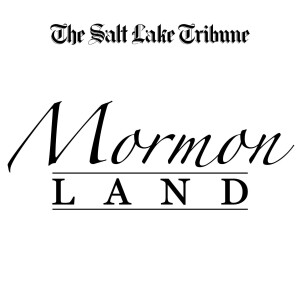
Wednesday Dec 08, 2021
Wednesday Dec 08, 2021
Leaders of nearly 200 nations met in Glasgow, Scotland, recently to discuss how to limit climate change.
The Washington Post reports that they agreed to ramp up their carbon-cutting commitments, phase out some fossil fuels, and increase aid to poor countries on the front lines of global warming.
To many Latter-day Saints, these are urgent, even religious, concerns.
On this week’s show, George Handley, who teaches humanities at Brigham Young University and has written extensively about environmental issues, talks about how these eco-challenges connect with church teachings.
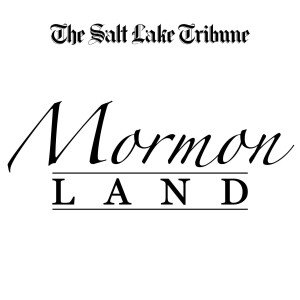
Wednesday Dec 01, 2021
Wednesday Dec 01, 2021
Temple work may have slowed due to the pandemic, but temple-building is moving forward at an unprecedented pace.
With The Church of Jesus Christ of Latter-day Saints announcing multiple new temples at each General Conference, architects are busy designing these holy edifices for locales ranging from Argentina to Zimbabwe and scores of places in between.
Besides creating new temples, the Utah-based faith is also renovating 10 existing ones, including the iconic Salt Lake Temple. Just last week, the church unveiled a new look for the 1970s-era Provo Temple and its Space Age design, one members have had a sort of love-hate relationship with through the years.
On this week’s show, Allen Roberts — a Utah architect who specializes in preservation and has worked on Latter-day Saint chapels, tabernacles and temples — discusses designs for these sacred structures, each of which members view as a “House of the Lord.”
He talks about how these temples are designed, the architectural styles that are employed, and reveals some of his favorites (19th-century temples like Manti and Logan top his list along with the ones in Cardston, Alberta, and Washington, D.C.) and some of his least favorites (the current Provo Temple, for instance).
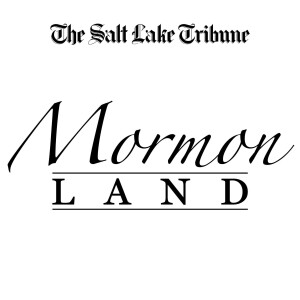
Wednesday Nov 24, 2021
Wednesday Nov 24, 2021
This month marks religion reporter Peggy Fletcher Stack’s 30th anniversary of covering The Church of Jesus Christ of Latter-day Saints for The Salt Lake Tribune.
During that time, she has traveled the globe, journeying with prophets and interviewing apostles. She has written about divisive doctrines and inclusive gatherings, emerging trends and groundbreaking shifts, religious eras and “Mormon moments.”
Mostly, though, she has written about people — people cherishing faith, people questioning faith, people rejecting faith.
On this week’s show, she shares highlights from her remarkable career and answers questions from our Patreon supporters.
Listeners will get the scoop on her travels with Gordon Hinckley — including how she got into a meeting with the Latter-day Saint prophet and Ghana’s president — her behind-the-scenes conversations with Marjorie Hinckley and apostle Dallin H. Oaks. They’ll also get her take on what prompted church President Russell Nelson’s remark about knowing her family, how she learned about apostle David Bednar’s hair gel and many other stories.
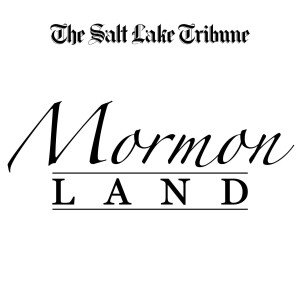
Wednesday Nov 17, 2021
Wednesday Nov 17, 2021
Six years ago this month, The Church of Jesus Christ of Latter-day Saints instituted a policy labeling same-sex married couples “apostates” and barring their kids from baptism.
The policy later was abandoned, but the pain persisted. Since then, there have been highs and lows with the Utah-based faith and its LGBTQ members: an Honor Code about-face at Brigham Young University, the Y lit up in rainbow colors, BYU’s mascot coming out as gay, and apostle Jeffrey R. Holland calling out a college’s valedictorian for announcing his sexual orientation at graduation.
On this week’s show Tom Christofferson, a prominent LGBTQ member and author of “That We My Be One: A Gay Mormon’s Perspective on Faith and Family,” discusses the November 2015 policy — how it shook the church, why it was implemented and later scrapped, where the faith sits now on LGBTQ issues and his hopes for the future on the topic.
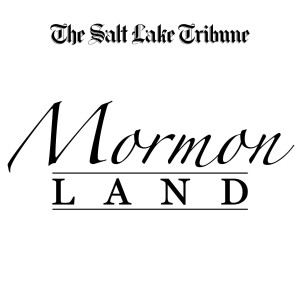
Wednesday Nov 10, 2021
Wednesday Nov 10, 2021
The Church of Jesus Christ of Latter-day Saints considers itself the “restoration” of a complete Christianity that was lost centuries ago after the death of the biblical apostles.
Several years ago, Denver Snuffer, a former Latter-day Saint, launched his Remnant movement, preaching that the Utah-based faith fell away from the truth after founder Joseph Smith was killed in 1844 and Brigham Young led his followers West.
Now, yet another faction, called The Doctrine of Christ, has emerged. Phil Davis, a Latter-day Saint in Provo, asserts that Young murdered Smith and that Mormonism’s first prophet recently returned to re-restore the church with Davis at its helm.
On this week’s show, Cristina Rosetti, a religious studies scholar at Claremont McKenna College in Southern California, discusses these groups, why some Latter-day Saints are joining them, how conspiracy theories play a role, and whether they pose any threat to the mainstream church.
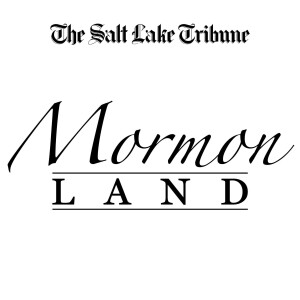
Wednesday Nov 03, 2021
Wednesday Nov 03, 2021
After Mormonism founder Joseph Smith was killed in 1844, the largest body of the fledgling faith went west with Brigham Young. But a sizable group, including Smith’s widow, Emma, and her children, stayed in the Midwest and, in 1860, founded another church known then as the Reorganized Church of Jesus Christ of Latter Day Saints, with Smith’s eldest son as president.
In 2001, the church changed its name to the Community of Christ to reflect a more mainline approach than their Latter-day Saint cousins.
As of 2018, it was reported to have 250,000 members in 1,100 congregations in 59 countries.
On this week’s show, Bishop Carla Long, who leads a Utah congregation in Millcreek, talks about her church’s past, present and future. She also discusses how her faith differs from that of the much-larger, Utah-based church, how it views scriptures (including the Book of Mormon and the Doctrine and Covenants), priesthood, polygamy, the godhead, the afterlife, and why Community of Christ members shy away from the “Mormon” moniker as well.
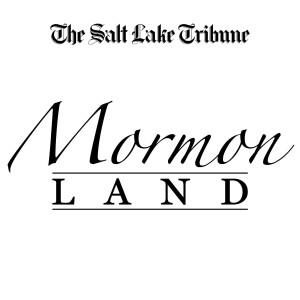
Wednesday Oct 27, 2021
Wednesday Oct 27, 2021
Women in The Church of Jesus Christ of Latter-day Saints are reared to be homemakers, caring for their house and family as a kind of religious obligation, while their husbands work to support the clan.
But that isn’t how it works for all Latter-day Saint women in a modern society and economy, which often fall short in valuing the work they do in the home. Many take on part-time employment to bring in extra money, while caring for kids, and that can open up some of them to the false allure of multilevel marketing scams.
One of those businesses, LuLaRoe, which sells bold-print clothes and leggings, was started by a Latter-day Saint couple and was the subject of a recent Amazon documentary titled “LuLaRich.”
Meg Conley, a Latter-day Saint essayist in Denver and publisher of a newsletter called Homeculture, discusses the documentary, why members may be attracted to MLMs, and what this phenomenon says about Latter-day Saint culture, and the blending of beliefs and business.
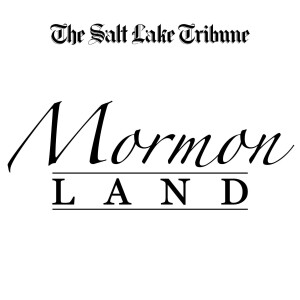
Wednesday Oct 20, 2021
Wednesday Oct 20, 2021
Fifty years ago this month, The Church of Jesus Christ of Latter-day Saints established the Genesis Group, a support organization for Black members.
It came at a time when men and women with African blood were denied access to the priesthood and temple. Genesis served as a quasi-branch of the faith, meeting on the first Sunday of every month. It was like no other church organization — not an auxiliary like the Relief Society but more than a “fireside.”
When the priesthood and temple ban on Black members was lifted in 1978, Genesis continued to meet, offering fellowship to Black members, many of whom struggle to this day worshipping in a mostly white church.
As Genesis celebrates its golden anniversary, one of its original leaders, Darius Gray, talks about the group’s founding, its purpose and its future.
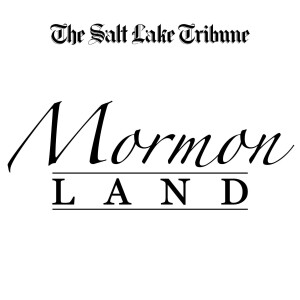
Wednesday Oct 13, 2021
Wednesday Oct 13, 2021
When the governing First Presidency of The Church of Jesus Christ of Latter-day Saints amped up its plea in August for masking and vaccinations, some conservative members who oppose such COVID-19 measures balked.
Now they know how it feels, responded many progressive Latter-day Saints, who have found themselves similarly on the outs with top church leaders on a range of issues from women’s rights to same-sex marriage.
Such was the setup for a major Washington Post story about the rise of liberal Latter-day Saints, especially among younger members.
On this week’s show, author Emily Kaplan joins us to discuss her piece and the tug of war taking place between progressive and conservative forces within the faith.
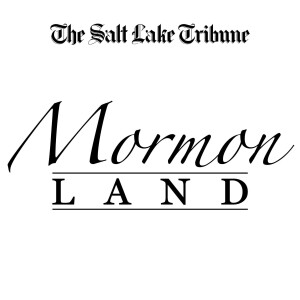
Wednesday Oct 06, 2021
Wednesday Oct 06, 2021
The recently completed 191st Semiannual General Conference of The Church of Jesus Christ of Latter-day Saints provided 10 hours of sermons from the faith’s top leaders, including four women among dozens of men.
In this fourth straight all-virtual conference, worldwide listeners heard speeches about mental illness, the importance of temples and dissension among the membership. Speakers also focused on the need to hold fast to faith in Christ, use the church’s full name, and take precautions against the coronavirus pandemic.
On this week’s show, Emily Jensen, a writer and web editor for Dialogue: A Journal of Mormon Thought, discusses the weekend’s sessions — the words, the music, what inspired, what disappointed, and what the proceedings may mean moving forward.

More Mormon Land
There's more to "Mormon Land" than just the podcast. You can get access to episode transcripts, Tribune faith stories and more on Patreon.
Sign up for the free weekly Mormon Land newsletter to get the latest happenings about the church from around the world.
And follow Mormon.Land on Instagram.







